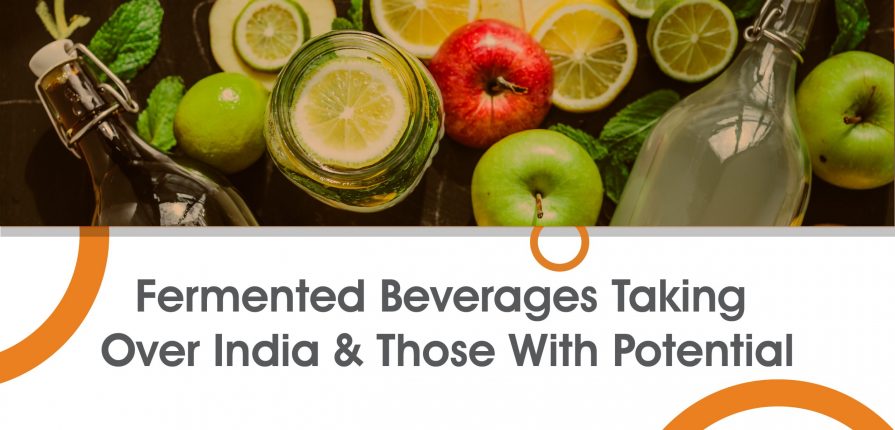Over a two-year health crisis, food trends moved over to nutritious, power-packed options. From salads to immunity-boosting snacks and oil-free eating, social media was filled with indications of a shift in trend.
What we also noticed was this trend moving towards beverages as well. Recipes for kadhas or herbal decoctions made the rounds with COVID-19. But there was also interest in fermented beverages that are known to be excellent sources of beneficial bacteria and probiotics. Here are a few:
Kombucha
This fermented tea drink was among the most popular trends that swept across the sub-continent during the pandemic. The fizzy drink originated in China, from where tea – the basis of kombucha – originated. Yeast and sugar are added to ferment black tea over time and the resultant drink works as a probiotic with an added boost of B vitamins.
In India, brands have gotten on the bandwagon including Borecha from Goa, Delhi’s Atmosphere, Mumbai’s HappyBooch and Bombucha, Bangalore’s Mountain Bee, Faridabad’s Raw Kombucha, Hyderabad’s Hydra Kombucha and others. According to Techsauce, the market has been growing at 162.2 per cent year on year.
Kefir
This fermented drink from Russia isn’t anything as popular as kombucha but according to the Market Data Forecast website, will soon grow with India’s increasing disposable income and adoption rate of functional beverages.
Kefir grains were traditionally mixed with milk from cows, goats or sheep and left to ferment in goatskin bags. Today, consumers with lactose intolerance choose non-dairy substitutes including coconut milk, soy milk and nut milk to make kefir. Some also culture the grains with filtered water, coconut water or fruit juices to make water kefir. Brands in India include Kefir Culture, Leo Patel and Happy Live Cultures.
Kvass
From the same Caucasus region comes kvass, a fermented grain drink, that typically has an almost negligible alcohol percentage (1.5 per cent). It’s a cloudy beverage that presents a sweet-sour taste to which berries, fruits, herbs and honey can be added for flavour.
Traditionally, dry rye bread or rye flour and malt was fermented with bread yeast and sugar for 12 hours at 20 degrees Centigrade. The drink is extremely popular in Russia and other Eastern European countries but is relatively unknown in India. The Milee Droog cafe in Kolkata serves this gut-friendly drink, while Bombucha and Urban Platter ship beet-flavoured versions across India.
Tepache
From the far reaches of Mexico comes a fizzy, vegan drink that is expected to cater to the market interested in all things sustainable, ethical and healthier. Made from the peels and rind of pineapples and sweetened with brown sugar, tepache makes for the perfect summer probiotic.
Including spices such as cinnamon, cloves, star anise and ginger to the fermentation process adds interesting hints of flavour to this naturally fizzy drink. Since pineapple peels ferment naturally, many brewers avoid using additives, but sugar and yeast do speed up the process.
In India, Heypache is thought to be India’s first pineapple tepache brand, with others including Mavi’s are also coming into the market.







Leave a Reply